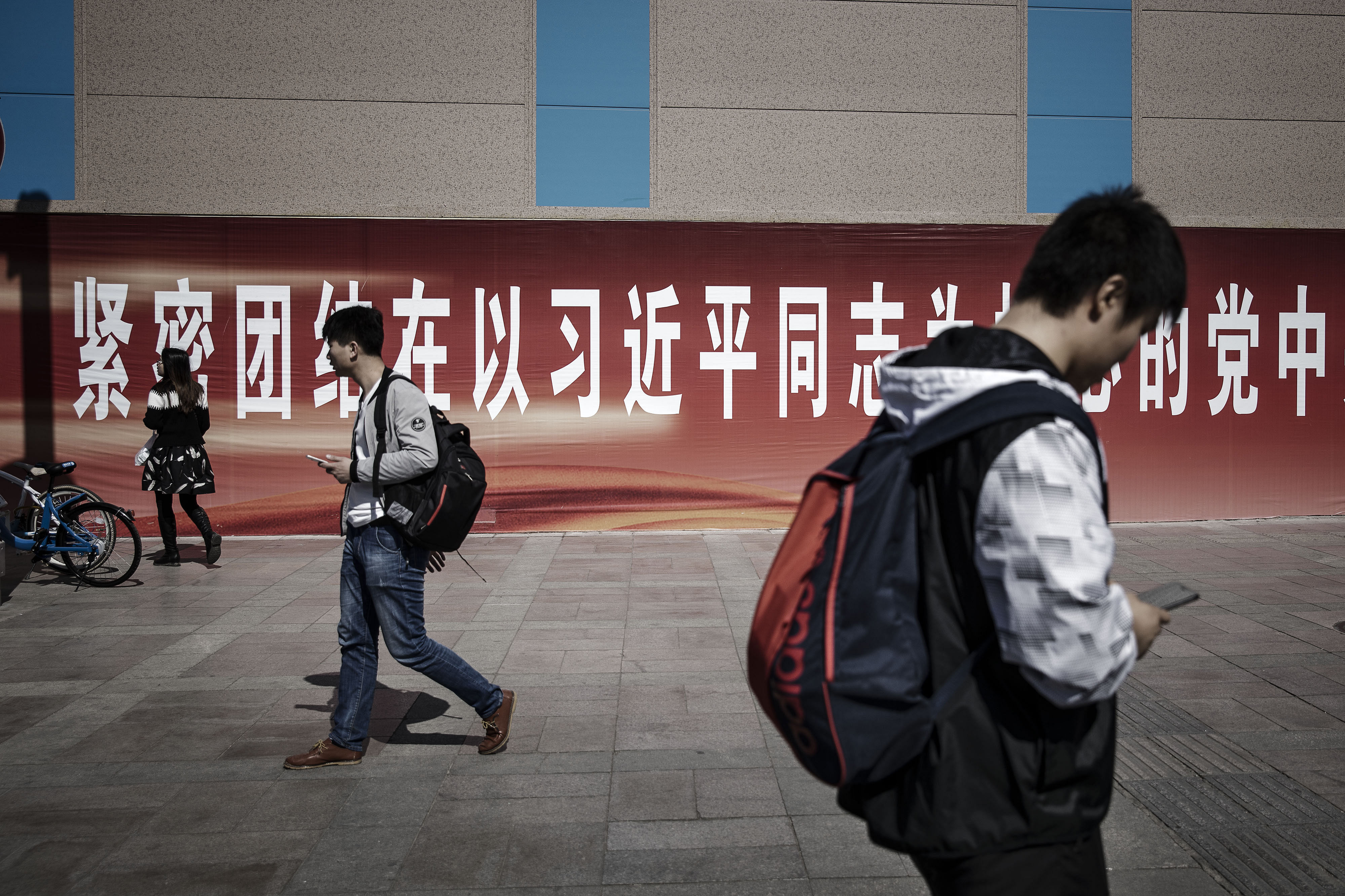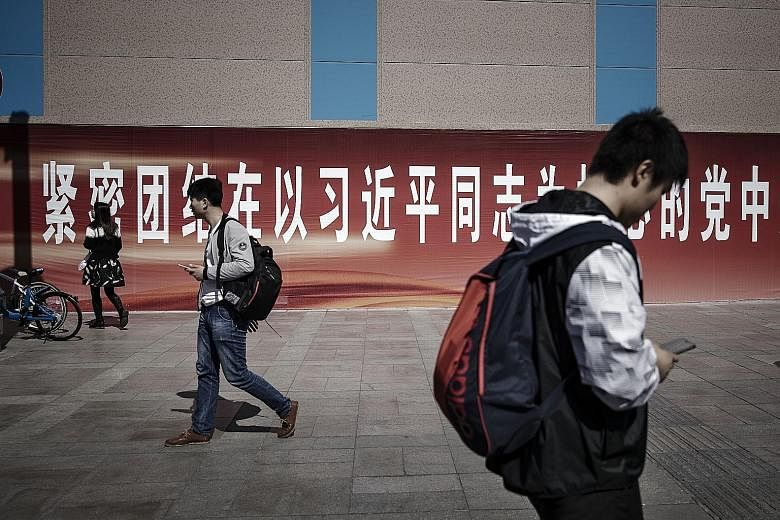BEIJING • What a difference a year makes. This time last year, it was clear that efforts to make China's President Xi Jinping the core of the Communist Party leadership - read "power consolidation" - were floundering.
This year, at the annual parliamentary session that ended last week, any lingering doubt about Mr Xi's power consolidation ahead of a crucial leadership transition later this year was dispelled.
Premier Li Keqiang, in his government work report at the opening of the National People's Congress (NPC) on March 5, spoke no fewer than five times about following "the leadership of the Party Central Committee with Comrade Xi Jinping at its core".
Similarly, NPC chairman Zhang Dejiang in his annual report on March 8 spoke about rallying round the leadership of the party's Central Committee with Mr Xi, the general secretary of the party, "at its core".
Last year, in both their reports, Mr Li and Mr Zhang had only this description of Mr Xi - to "fully put into practice the guiding principles from General Secretary Xi Jinping's major policy addresses".

This was despite apparent efforts from January last year to make Mr Xi the party core, with some provincial leaders calling for the upholding of "the core that is General Secretary Xi Jinping".
Worse yet, at about the same time, there was an open letter supposedly from loyal members of the Communist Party calling for Mr Xi to resign. The letter said his accumulation of power and his decisions had led to "unprecedented problems and crises in all political, economic, ideological and cultural spheres".
Mr Xi had quickly amassed power after taking over the reins of the party in November 2012, making himself head of several policymaking groups, including one on economic reforms - usually the purview of the premier - and becoming commander-in-chief of the military.
He had also taken some bold moves to modernise the military and fight official corruption, the latter winning him much popularity among the Chinese people. But these actions have alienated many in the ruling class and vested interest groups.
The campaign to make Mr Xi the party's core appeared to have died down from then until last October, when a statement issued after a four-day meeting of senior party officials said all members should "closely unite around the Central Committee with Comrade Xi Jinping as the core".
But this announcement came with a proviso that appeared to seek to limit Mr Xi's power somewhat. It said the collective leadership framework - painstakingly built since the opening up and reform of China began in 1978 to prevent the chaos of the Cultural Revolution under the strongman rule of Mao Zedong - "must always be followed and should not be violated by any organisation or individual under any circumstance or for any reason".
The NPC session this year confirmed the strengthening of Mr Xi's authority. Senior officials, without fail, hailed the Chinese leader as "the core" of the party leadership not only in government reports but also at the various meetings and press conferences.
Before Mr Xi, only one other president - Mr Jiang Zemin - had been described as the core. This title was bestowed by Mr Deng Xiaoping in 1989 when Mr Jiang replaced Mr Zhao Ziyang as general secretary in the aftermath of the June 4 Tiananmen incident. The purpose was to strengthen the weak authority of Mr Jiang, an outsider brought in from Shanghai.
Mr Hu Jintao, Mr Jiang's successor, was never conferred the title and it was telling as his grip on power was not strong. Mr Hu was never more than "first among equals" in his 10 years as party chief, state president and military chief.
What is significant in Mr Xi's case is that the title was not bestowed from on high. Instead, he is hailed as "the core" by leading figures of the party around him, noted Professor Huang Jing of the Lee Kuan Yew School of Public Policy.
"Mr Xi had earned the title himself," said Prof Huang, an expert in Chinese politics. He added that this designation meant Mr Xi has become dominant in two important issues - personnel arrangement and agenda setting.
The first - personnel arrangement - is crucial for the upcoming 19th National Congress of the Communist Party, likely to take place towards the end of the year, where there will be a leadership transition.
Most of the seven members of the top echelon of power, the Standing Committee of the party Politburo, are due to step down then. Personnel changes will also take place at the Politburo level as well as in the provincial leadership.
Mr Xi will have a strong hand in making these personnel changes, putting in place his own people.
He will also be able to set the agenda for the party, deciding on what issues it should prioritise, said Prof Huang.
Indeed, Mr Li in his work report spoke about implementing Mr Xi's "four-pronged comprehensive strategy" of building a moderately prosperous society, deepening reforms, advancing law-based governance and strengthening party self-governance.
However, challenges remain for the Chinese leader, said Prof Huang. These include military reform and making sure that economic development is successful.
Greater power brings with it greater responsibility, and Mr Xi's mantle is heavier than before.


